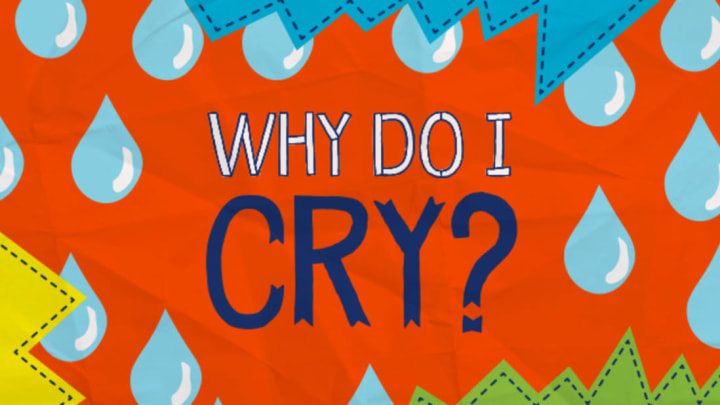Why Do I Cry?

WHY? is our attempt to answer all the questions every little kid asks. Do you have a question? Send it to why@mentalfloss.com.
Here’s the easy answer: you cry because your brain tells a gland under each of your eyelids to make tears. These are called the lacrimal (LAH-kruh-mul) glands. But your body doesn’t just make one type of tear. It makes three! Each type of tear has a special job to do.
Some tears protect your eyes. Basal (BAY-sul) tears spread over your eyes all the time to keep them moist and get rid of bad bacteria. Reflex tears wash away stuff that gets in your eye, like sand or dirt. And then there are emotional tears. These are connected to your emotions, or feelings, like sadness, anger, fear—even happiness! These strong feelings cause your heart to pump faster, your breathing to speed up and the opening in your throat to get bigger, making it hard to swallow. They also cause your eyes to make emotional tears. A lot of people feel calmer after they cry, but we’re not sure why. Emotional tears are unique to humans. We are the only creatures on Earth that cry because of our feelings.
Some scientists think we cry as a result of how ancient humans learned to survive. Crying and tears may have been ways to let other people know we are upset and that we want help from them. We know babies cry loudly to get help from their parents. But as we grow up and learn to take care of ourselves, we make less noise when we cry and instead make tears. Some scientists think early humans learned that quieter crying kept them safe from enemies, and from getting caught by wild animals that might eat them! But with tears, they could still let other people know they needed help without making a lot of noise.
For further reading, check out our story "7 Teary Facts About the Science of Crying."